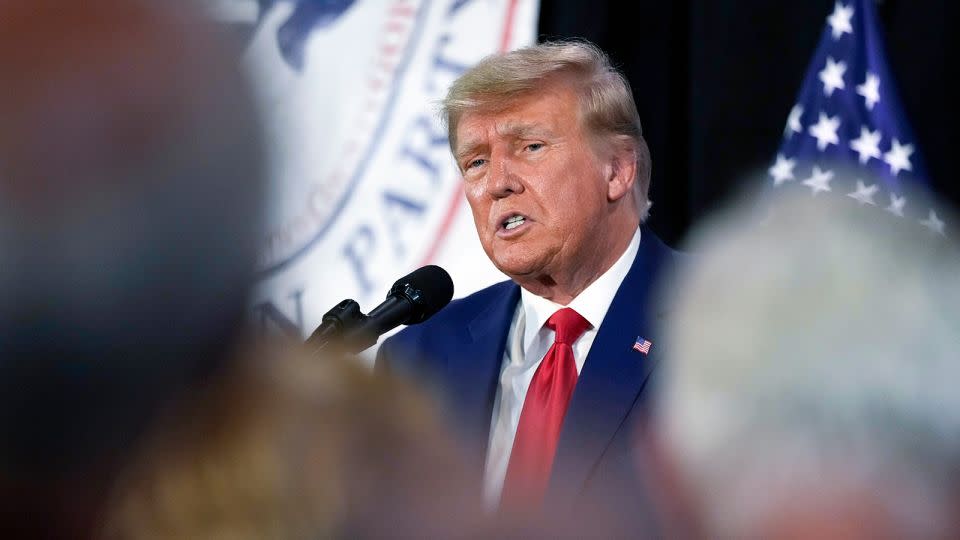Fact check: Trump falsely claims he isn’t allowed to appeal fraud ruling until he puts up big money

- Oops!Something went wrong.Please try again later.
- Oops!Something went wrong.Please try again later.
- Oops!Something went wrong.Please try again later.
Former President Donald Trump made a series of false claims on Tuesday while railing against the judge who issued the $454 million civil fraud judgment against him.
Trump posted the claims on social media the day after his lawyers said in a court filing that he had been unable to persuade any company to provide the appeal bond he needs in order to stop New York Attorney General Letitia James, who filed the successful lawsuit against him, from beginning to collect on Judge Arthur Engoron’s judgment.
Trump baselessly accused Engoron and James of corruption and wrote that they are “asking me to put up massive amounts of money before I am allowed to appeal the ridiculous decision. Never done before.” He also claimed that Engoron “wants me to put up Hundreds of Millions of Dollars for the Right to Appeal his ridiculous decision” and that “Engoron wants me to put up the ridiculous fine (I DID NOTHING WRONG!) before I get a chance to Appeal his crazed ruling - A first!”
Trump claimed in another post: “I shouldn’t have to put up any money, being forced by the Corrupt Judge and AG, until the end of the appeal. That’s the way system works!”
Facts First: Trump’s claims are comprehensively untrue. He is allowed to appeal Engoron’s decision without putting up any money. In fact, he is already appealing; he filed his notice of appeal in February, the first business day after Engoron made the ruling official. And what Trump is actually being required to do – put up cash or a bond for the full amount of the judgment to secure a stay that would prevent James from collecting during the appeals process – is not “a first” or something “never done before.” The requirement is set out by New York law, and it is regularly applied in civil cases in the state.
“This is literally the way that the NY rules of court are designed to work, and actually work every day,” said Mitchell Epner, a former federal prosecutor who is now a litigator in private practice in New York. He said the rules being applied to Trump “are applied every day in New York courts, on verdicts of all sizes,” though the size of the judgment against Trump is notably large.
Epner added: “Donald Trump is either horribly misinformed or lying.”
Given that Trump appealed Engoron’s ruling before putting up any money, it is obvious that Engoron hasn’t made the right to appeal dependent on putting up a large amount of money. “He’s allowed to appeal regardless… he’s already appealing,” said Neil Pedersen, president of a surety bond agency in New York.
James gave Trump a 30-day grace period before she starts to collect on the judgment. It ends on Monday, March 25, meaning that this date is a de facto deadline for Trump to find the cash or a bond unless a New York appeals court panel agrees to his request to allow him to avoid putting up the money until the end of the appeals process – which could be years from now. (The appeals court could alternately allow Trump to put up a smaller amount of money.)
If Trump did not secure a stay, James collected on the judgment, and then Trump eventually won the case on appeal, James would be required to return any collected money to Trump along with interest, Epner said.
For more CNN news and newsletters create an account at CNN.com

